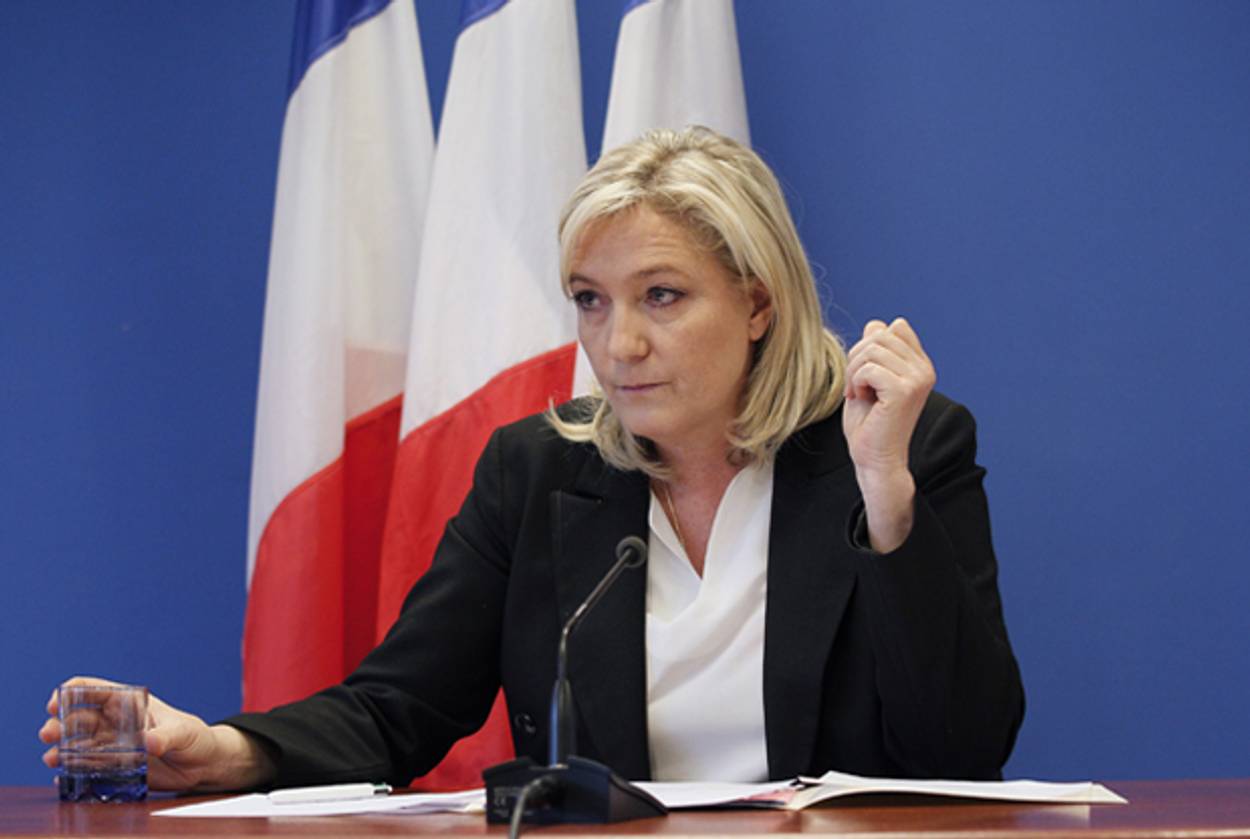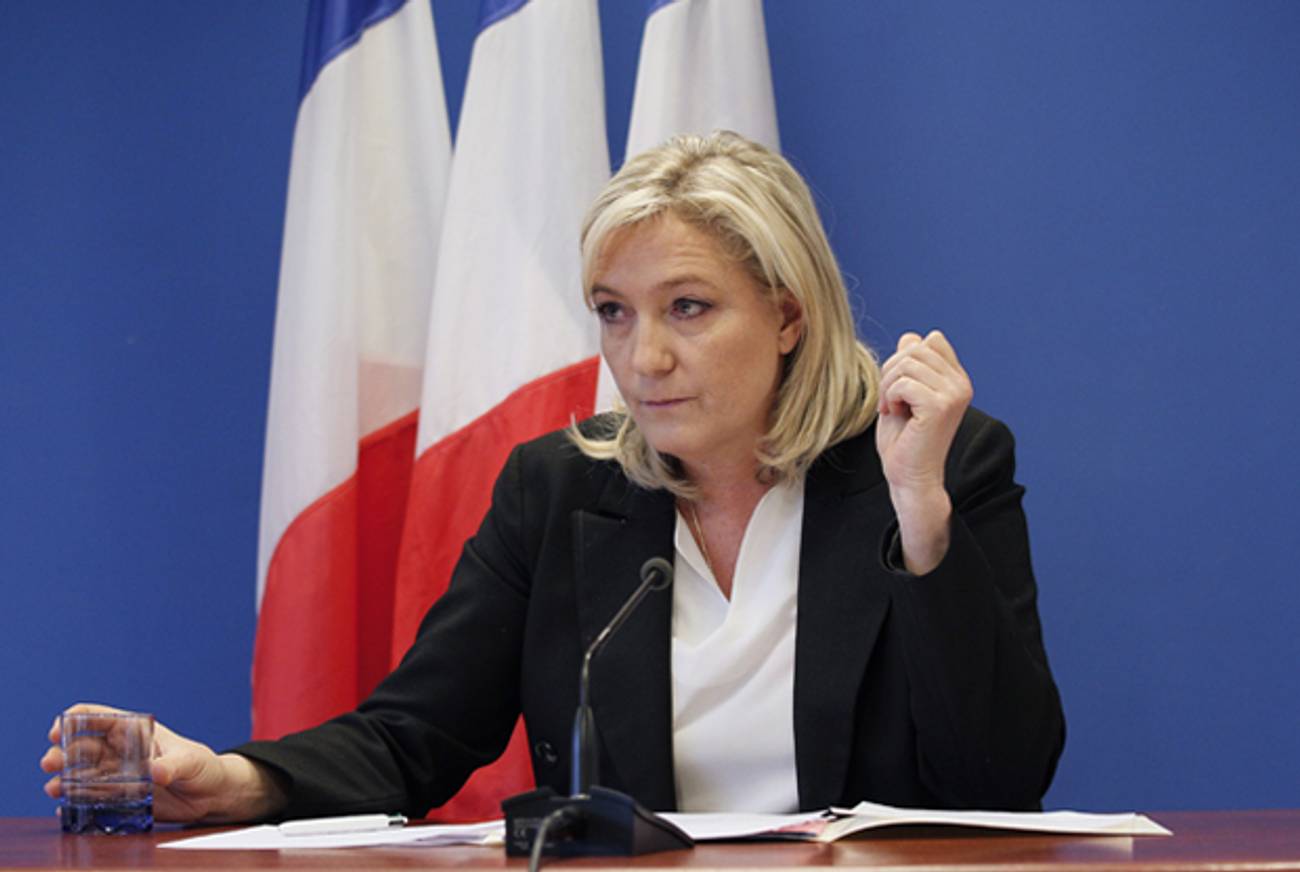After Paris Attacks, Le Pen Takes Case to NYT
National Front leader pushes harder line against Islamic fundamentalism




After the attacks in Paris earlier this month, many observers—including Tablet’s Marc Weitzmann—predicted that the events would give a political boost to Marine Le Pen, leader of France’s far-right National Front. Le Pen had taken a harder line against immigration than other French politicians, and, as we’ve seen elsewhere, terror has a way of empowering xenophobia.
So far, though, that boost hasn’t materialized. Recent polls show that her party hasn’t gained much support in the aftermath of the attacks. Meanwhile, President Francois Hollande’s ratings are up.
But Le Pen is still trying to advance her cause in the aftermath of the attacks. In a New York Times op-ed Monday, Le Pen layed out a predictably aggressive platform on immigration, and a strong defense of the French flavor of secularism, known as laïcité.
At first glance, the piece presents a pretty standard National Front case: the current government has been too lax on immigration; France’s foreign minister needs to start talking openly about the threat of Islamic fundamentalism, instead of indulging in politically correct waffling; France needs to institute border checks (contra European Union policy), restrict immigration, and get more serious about Syria. It’s near the end of the piece, though, that Le Pen jumps into a defense of France’s national identity. Out of context, this section sounds like a rousing defense of the secular public square. Coming from Le Pen, though, it sounds more like a veiled warning to France’s Muslims and Jews.
“Now the French people, as if a single person, must put pressure on their leaders so that these days in January will not have been in vain.” she writes. “We, the French, are viscerally attached to our laïcité, our sovereignly, our independence, our values.”
It’s worth reflecting, for a moment, on what Le Pen means by laïcité. In a 2014 interview with Tablet, Le Pen objected to the idea of a Jewish community that was somehow separate from that of the French public. “I recognize,” she told Weitzmann, “only one community: the national one. The Republic is one and cannot be divided.” Le Pen has previously called for a ban on wearing yarmulkes and Muslim headscarves in public spaces. When she speaks about secularism, she seems to be referring not to the pluralistic public square that most Americans imagine, but something closer to politically-enforced cultural unity.
In this light, the idea of the French people, united “as if a single person,” starts to sound sinister. Who’s included in that corporate body, in Le Pen’s vision? And who is—or could be—excluded?
If anything, Le Pen’s op-ed highlights her growing international prominence, and the unusual bind in which France’s Jews now find themselves. On one hand, there are Islamist extremists carrying out violent attacks on Jews. On the other, there are those on the far right whose politics profit from that violence. In the middle, there are the country’s 600,000 Jews.
Previous: Should French Jews Leave for Israel?
Related: A Tablet Exclusive Interview With Marine Le Pen, Head of the National Front
Send the Marine: The Rise of France’s Far-Right National Front Party
Michael Schulson is a freelance writer in Durham, North Carolina. He writes about religion, science, and culture.